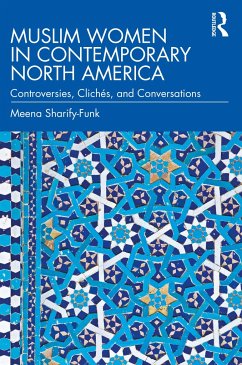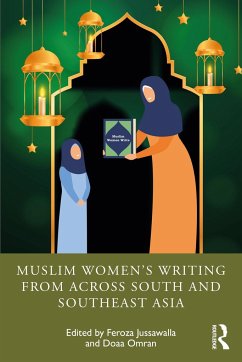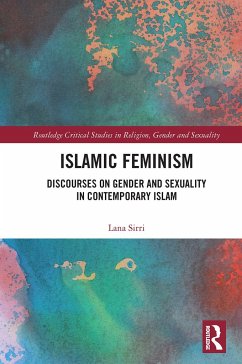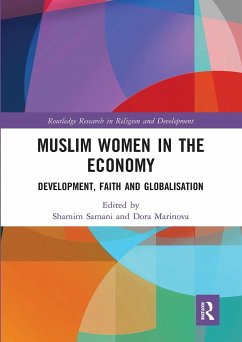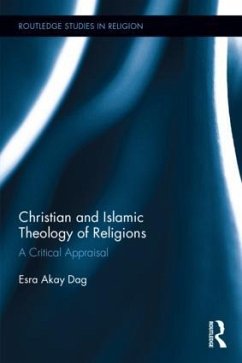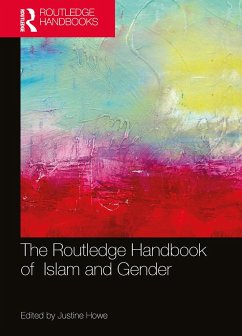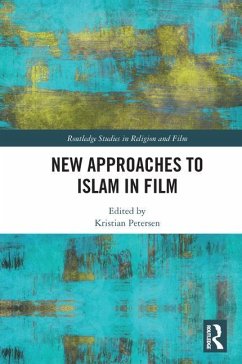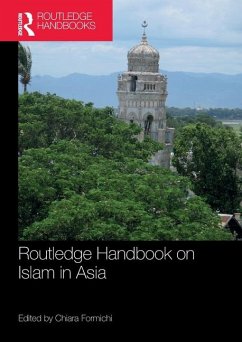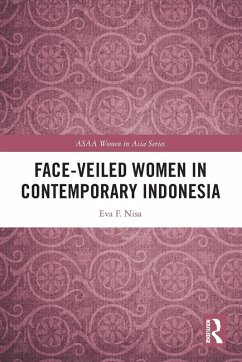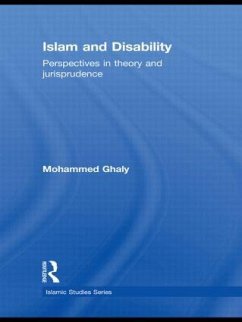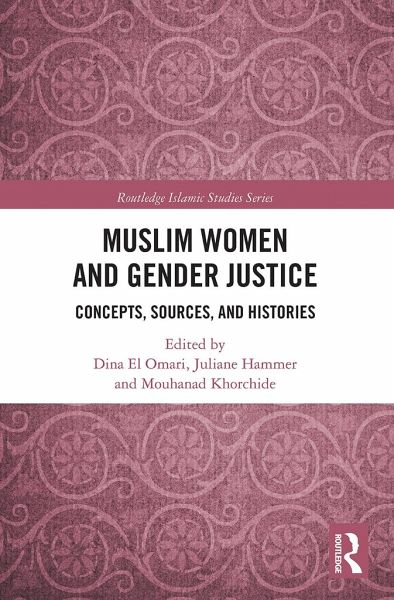
Muslim Women and Gender Justice
Concepts, Sources, and Histories
Herausgegeben: El Omari, Dina; Hammer, Juliane; Khorchide, Mouhanad

PAYBACK Punkte
23 °P sammeln!
This volume brings together the work of a group of Islamic studies scholars from across the globe. They discuss how past and present Muslim women have participated in the struggle for gender justice in Muslim communities and around the world.The essays demonstrate a diversity of methodological approaches, religious and secular sources, and theoretical frameworks for understanding Muslim negotiations of gender norms and practices. Part I (Concepts) puts into conversation women scholars who define Muslima theology and Islamic feminism vis-à-vis secular notions of gender diversity and discuss th...
This volume brings together the work of a group of Islamic studies scholars from across the globe. They discuss how past and present Muslim women have participated in the struggle for gender justice in Muslim communities and around the world.
The essays demonstrate a diversity of methodological approaches, religious and secular sources, and theoretical frameworks for understanding Muslim negotiations of gender norms and practices. Part I (Concepts) puts into conversation women scholars who define Muslima theology and Islamic feminism vis-à-vis secular notions of gender diversity and discuss the deployment of the oppression of Muslim women as a hegemonic imperialist strategy. The chapters in Part II (Sources) engage with the Qur'an, hadith, and sunna as religious sources to be examined and reinterpreted in the quest for gender justice as God's will and the example of the Prophet Muhammad. In Part III (Histories), contributors search for Muslim women's agency as scholars, thinkers, and activists from the early period of Islam to the present - from Southeast Asia to North America.
Representing a transnational and cross-generational conversation, this work will be a key resource to students and scholars interested in the history of Islamic feminism, Muslim women, gender justice, and Islam.
The essays demonstrate a diversity of methodological approaches, religious and secular sources, and theoretical frameworks for understanding Muslim negotiations of gender norms and practices. Part I (Concepts) puts into conversation women scholars who define Muslima theology and Islamic feminism vis-à-vis secular notions of gender diversity and discuss the deployment of the oppression of Muslim women as a hegemonic imperialist strategy. The chapters in Part II (Sources) engage with the Qur'an, hadith, and sunna as religious sources to be examined and reinterpreted in the quest for gender justice as God's will and the example of the Prophet Muhammad. In Part III (Histories), contributors search for Muslim women's agency as scholars, thinkers, and activists from the early period of Islam to the present - from Southeast Asia to North America.
Representing a transnational and cross-generational conversation, this work will be a key resource to students and scholars interested in the history of Islamic feminism, Muslim women, gender justice, and Islam.





